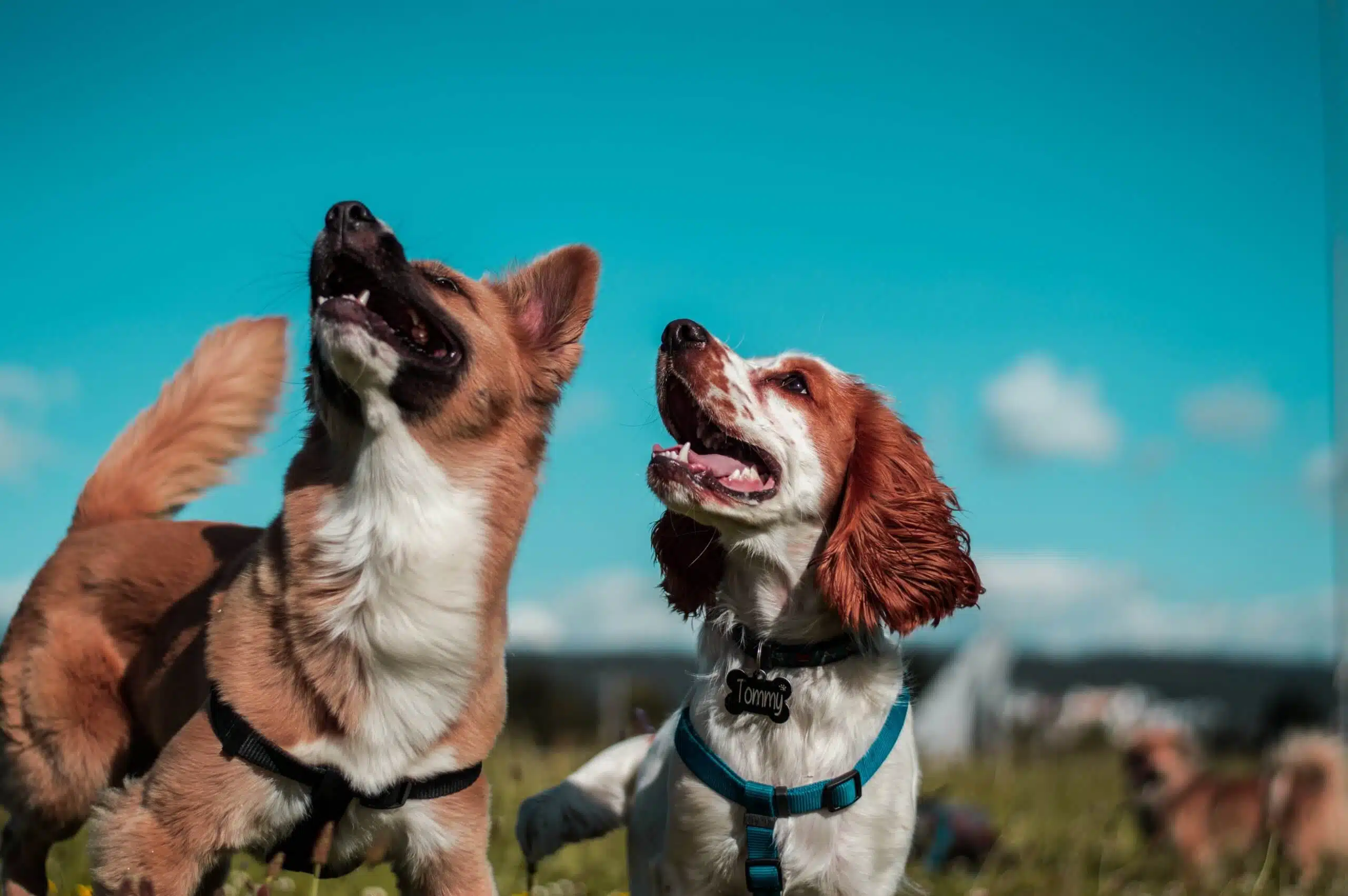A new study reveals that about half of Americans are afraid to vaccinate their dogs, thereby risking the spread of rabies and other diseases that can harm the animal - and humans. And what is the situation in Israel?

Among the unexpected heroes of the war, those who walk on all fours - the fighting dogs of the Sting Unit - also made headlines. And in our house too, more than once our dogs guard us and what is ours with dedication. However, for this we also need to protect them - and some are hesitant to do so.
בNew research conducted in the United States and recently published in the journal Vaccine, it was found that about half of the dog owners in the country hesitate to vaccinate their dogs against rabies and other diseases, and some even believe that these vaccines are harmful or ineffective - this despite the numerous proofs of their safety and critical importance to the health of dogs and humans.
As part of the research, a survey was conducted during March-April 2023 in which 2,200 dog owners from diverse populations in the USA participated. Participants were asked about their perceptions regarding dog vaccinations.
According to the research findings, 52 percent of the respondents in the study expressed hesitation when it comes to vaccinating their dogs. Of these, close to 40 percent of respondents admitted that they believe dog vaccines are unsafe. It was also found that over 20 percent believe that the vaccines are ineffective, and that 30 percent consider them medically unnecessary. Beyond that, about 37 percent of the respondents believe that vaccines can cause autism in their dogs - a false belief that has been disproved many times, also in the context of human vaccines (and which originates from Andrew Wakefield's research from 1998 - whose results were proven to be falsified, that the investigators who carried it out received bribes and that its leader had a clear financial interest in it. This fake research has caused enormous damage over the years). A negative opinion on dog vaccination is also linked in the study to opposition to obliging dog owners to vaccinate against rabies.
In addition, the researchers make it clear that hesitancy regarding dog vaccination is also related to negative attitudes towards human vaccination, and those who are afraid to vaccinate themselves - may also hesitate before vaccinating their pets.
A completely safe vaccine
It is important to note that the vaccines that are routinely given to dogs and other pets today are completely safe. "We do not encounter problematic or dangerous side effects as a result of vaccines," clarifies Dr. Rafi Kishon, owner Veterinary Clinic in Ramat Aviv and a lecturer. "I always explain that after vaccination the animal will feel unwell, it is possible that within half an hour it will start shaking and develop a fever. It's positive, and it's not a side effect - it's the vaccine, it's a sign that the body is absorbing it."
Beyond that, similar to the situation in almost all US states and many countries in the world, failure to vaccinate against rabies is a violation of Israeli law. "Every dog over the age of 3 months is required to have a rabies vaccination every year - so there is not even room for discretion here," clarifies Kishon. "In other words, the vaccine does not only protect against rabies, but also against the threat of fines that the bureaucrats drop on us - and I don't know which one is more dangerous," he jokes.
But even if this was not required by law, vaccination against rabies is very important due to the high danger of the disease. "Rabies is one of the few viral diseases in the world with 100 percent mortality," says Kishon. "You cannot be cured of rabies. Every person infected with rabies will die."
Every year people die around the world About 59 thousand people Of the rabies disease, about 40 percent of them are children under 15 years old from Asia and Africa. The disease is transmitted by a bite, with no less than 99 percent of the cases of morbidity in humans caused by contact with an infected dog, and the rest by contact with another infected animal (such as jackals, foxes and other mammals).
For the most part, the dogs hardly feel the sting of the rabies vaccine. Also in the financial aspect, in many veterinary clinics in Israel the vaccination itself is given for free, and the only payment is the fee for the annual license - which costs a few tens of shekels for a spayed or neutered animal.

Happily, Kishon says that the phenomenon of hesitancy and reluctance towards vaccinations found in the American study is much less significant in Israel. "Among my clients, I don't see this as a general phenomenon," he says. The rabies situation in Israel is also very positive compared to the situation in other (mainly developing) countries. "Fortunately, thanks to the vigorous actions of the Ministry of Agriculture and the local authorities, the disease only exists in a very isolated form in the periphery - in the Golan and the Jordan Valley, and mainly in wild animals - foxes, wolves and jackals, which can infect cows and grazing calves." However, according to him, any mammal can transmit the disease - and it may eventually reach domestic dogs as well. "There's nothing to hesitate and think about - it's also the law, and it's also a very dangerous disease," he says.
"Natural medicine" at its best
Of course, the rabies vaccine is not the only one that is important to give to dogs. "The hexavalent vaccine is the annual vaccine for dogs, which basically covers all the main diseases," explains Kishon. In addition to protecting the dog's health, this vaccine also protects against distemper - which can also be transmitted to humans and severely damage the kidneys.
Another critical vaccination for dogs is the one that protects against pertussis. "It is a highly contagious disease caused by a virus - which is accompanied by a bacterium," says Kishon. "It is a serious disease of the respiratory tract, which includes coughing that sounds like choking - people are very frightened, and are sure that a rusty nail is stuck in the dog's throat. There is a very effective vaccine against it, which is also given by nasal drip and not by injection."
And what about cats? As mammals, they too may contract rabies - and this happened in Israel as well. The rabies vaccine is recommended for cats - but only for those who leave the house, and who may encounter infected animals. Either way, it is important to vaccinate all cats with routine vaccinations. "The vaccine equivalent to the hexagon in cats is the quadruple vaccine. It is also important to give it to a cat that does not leave the house, because the owners can drag the viruses in with them."
"The vaccine is natural medicine at its best," says Kishon. "Actually, we inject a natural substance into the body - a virus, bacteria or parts of them - and this causes the wonderful natural action of building and creating antibodies, which create the body's immune response and provide resistance for a period of many years. It is not a complicated medical operation - with a small injection that does not really bother the dog at all, we prevent big, expensive and very dangerous problems", he concludes.
More of the topic in Hayadan:
